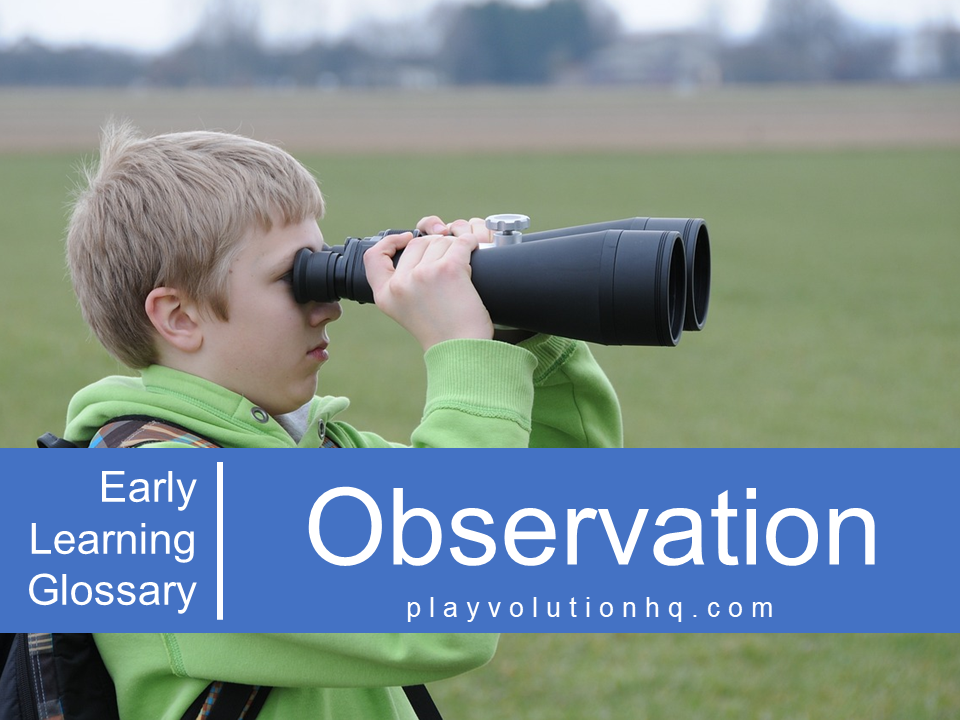
In early learning settings, observation involves systematically collecting data about a child’s actions, behaviors, and interactions to meet their needs better, understand them as individuals, personalize their learning environments, and document their development. Thoughtful and regular observation practices give caregivers a more nuanced understanding of a child’s world, offering a holistic view of a child’s unique qualities, preferences, and social interactions. This multifaceted understanding is instrumental in providing comprehensive support for a child’s development.
The Importance Of Observation
Here are 3 reasons why investing time and resources in the observation process is essential in early learning settings:
- Personalized Decision-Making–Keen observation allows caregivers to tailor their approach to meet individual needs. Observation provides valuable insights that guide educators in making informed decisions about a child’s learning journey.
- Environmental Tweaks—Caregivers can use insights from their observations to alter the play environment to benefit children. For example, an observer may notice that the block area has been exceptionally popular and then make changes that allow for more space, more blocks, and more time for block play.
- Early Intervention—An established system of regular observation increases the likelihood of early identification of developmental challenges. Timely recognition enables swift intervention, ensuring children receive the necessary support and resources.
- Social And Peer Dynamics—Through observation, caregivers gain insights into a child’s social interactions and peer dynamics. Understanding how a child engages with others, resolves conflicts, or collaborates on tasks provides valuable information about their social-emotional development. This knowledge enables the creation of supportive environments that foster positive relationships, empathy, and communication skills.
Formal And Informal Observation
Formal observation is planned and structured with specific objectives or criteria in mind. For example, attempting to figure out why Elliot is biting or how to improve traffic flow around the dramatic play area. It often involves using standardized observation tools, such as checklists or rating scales.
On the other hand, informal observation is more flexible and spontaneous and may not have a predefined structure. In practice, it looks like sitting down while the kids play and jotting down observations. It tends to be more antidotal. Data collected informally may be less structured and more subjective compared to formal observations.
Both types of observation play crucial roles. Formal observation tends to be more effective for problem-solving and informal observation is well-suited for collecting snapshots of children’s play and gaining unexpected insights into their relationships, interests, and developmental level.
Observation And The Scientific Method
Observation in early learning settings is part of a more extensive system of problem-solving and troubleshooting via the scientific method, a systematic approach to inquiry that involves making observations, forming hypotheses, conducting experiments, and drawing conclusions to refine understanding. Observation helps in:
- Identifying Patterns—Observation helps identify patterns, trends, or anomalies, providing the groundwork for forming hypotheses.
- Formulating Hypotheses—Hypotheses, educated guesses that guide research, are formed based on those observed patterns.
- Designing Experiments—Observations inform the design of experiments, helping researchers structure tests that validate or refute hypotheses.
- Collecting Data—At its core, observation is data collection. Collected data is used to refine and test theories.
Mitigating Observer Bias
Observer bias is a common challenge in the observation process, where preconceived notions and personal beliefs influence the interpretation of observational data. To mitigate such bias, observers should:
- Maintain Objectivity—Strive for objectivity by focusing on facts and avoiding assumptions. Simple awareness of your personal biases helps reduce biased observations.
- Use Multiple Observers—Using multiple observers helps cross-verify findings and reduce the impact of individual biases.
You can browse the Early Learning Glossary’s posts related to bias here.
Observation Tools
An observation tool refers to an instrument or method used in the process of systematically scrutinizing, recording, and analyzing behaviors, actions, and interactions of individuals or situations. Observation tools provide a standardized approach, ensuring that observations are consistent, objective, and focused on predefined criteria.
Such tools take various forms: checklists, rating scales, and anecdotal records, for example. The goal of using observation tools is to enhance the accuracy and effectiveness of the observation process.
Here are some popular observation tools I’ve created here at Playvolution HQ:
Browse the entire collection of observation forms here.
Observation Wrap-Up
Observation, when approached holistically and guided by objectivity, enhances an early learning program’s ability to serve the individual and group needs of children. All early learning settings should have systems in place to support regular formal and informal observation.
Contribute content to Playvolution HQ
Brought to you by Explorations Early Learning
Thoughts On This Entry?
I’d love to hear your thoughts on improving this entry and suggestions for additional glossary additions in the comments below. You can also contact me with comments or concerns.
Browse Trainings
Post Author
Jeff Johnson is an early learning trainer, podcaster, and author who founded Explorations Early Learning, Playvolution HQ, and Play Haven.

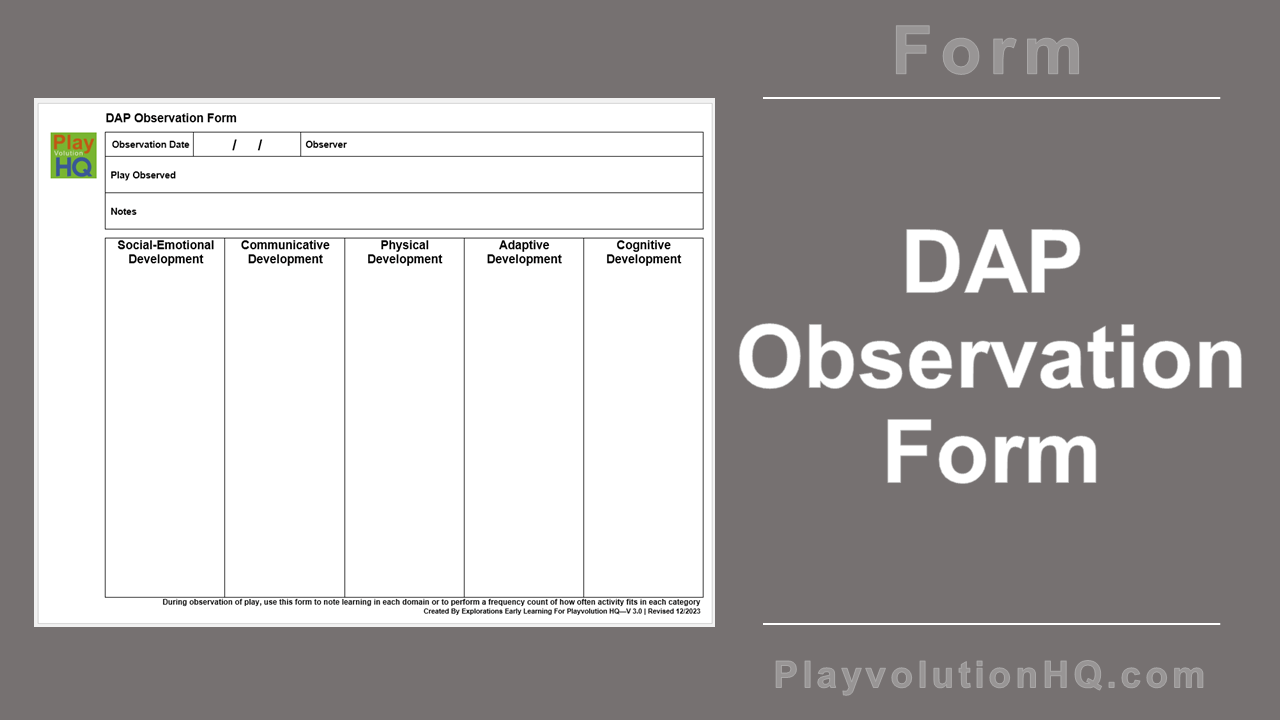
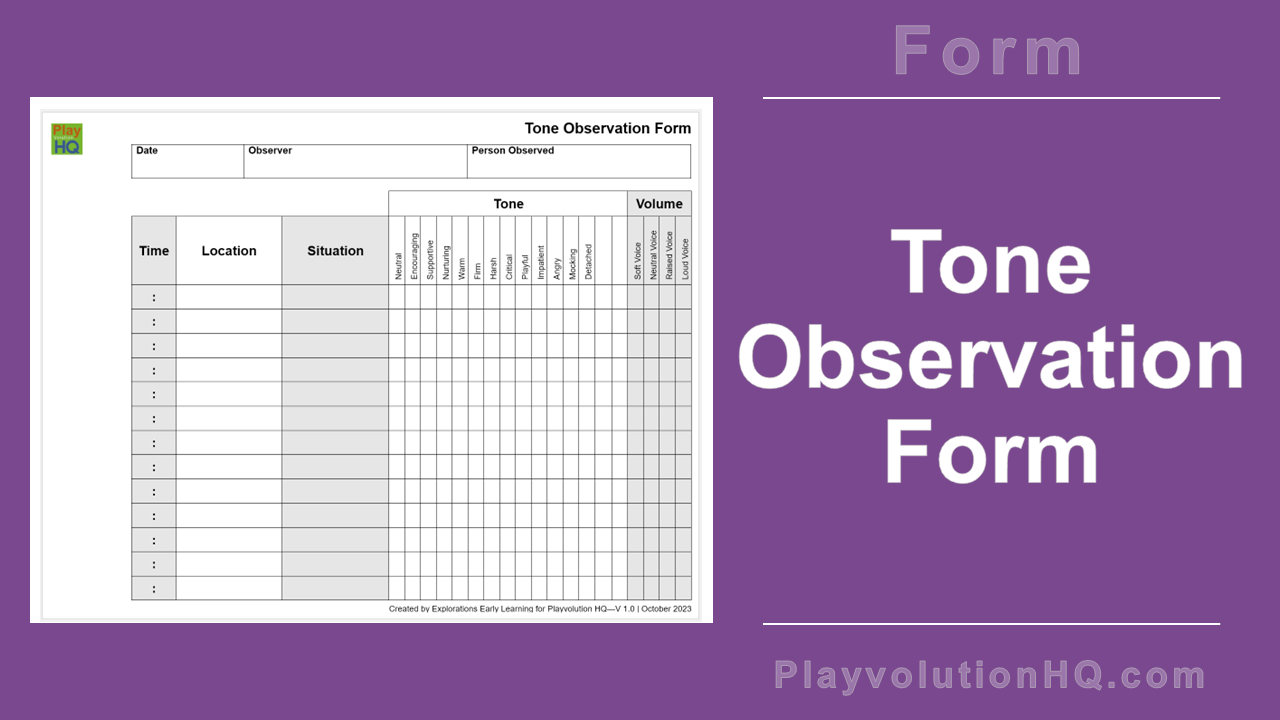
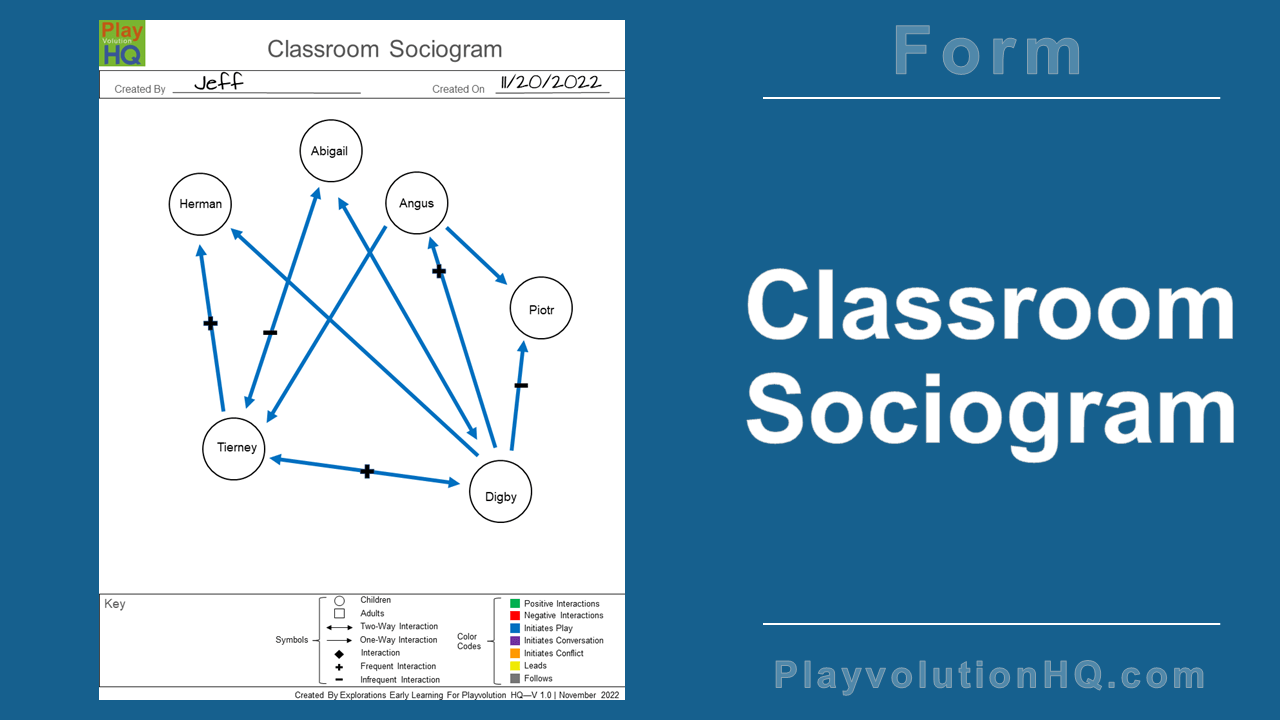
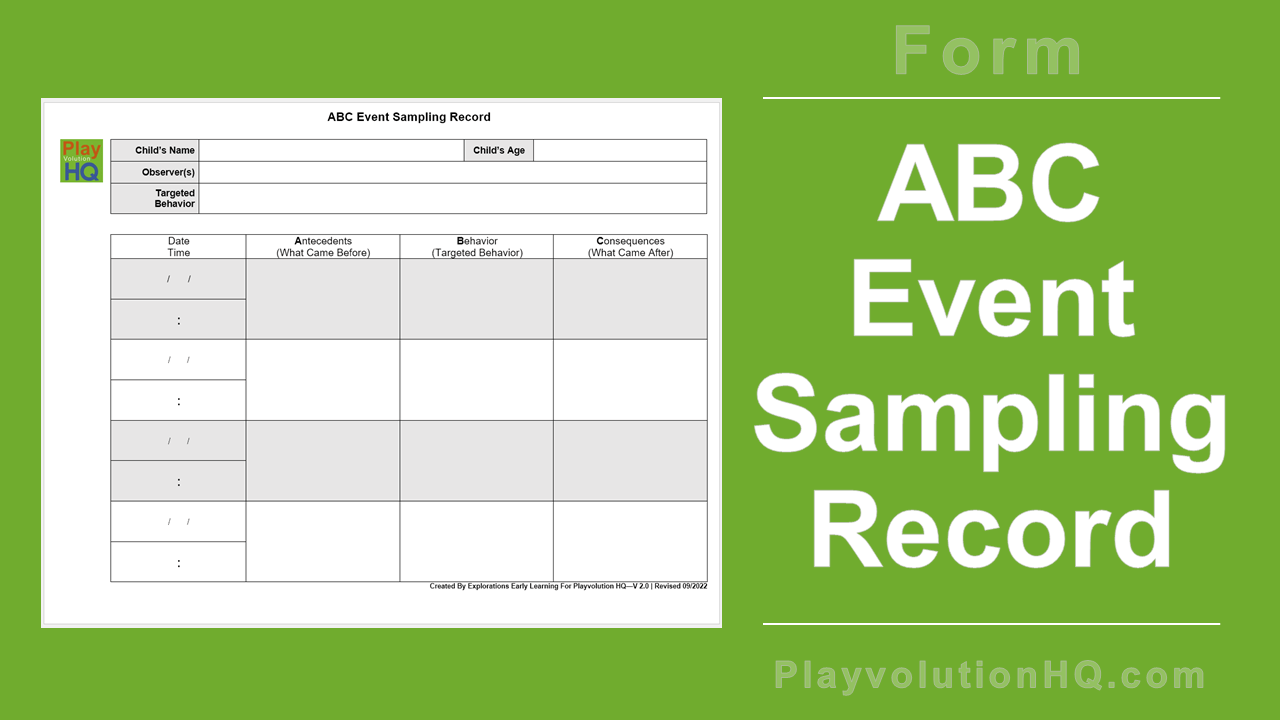
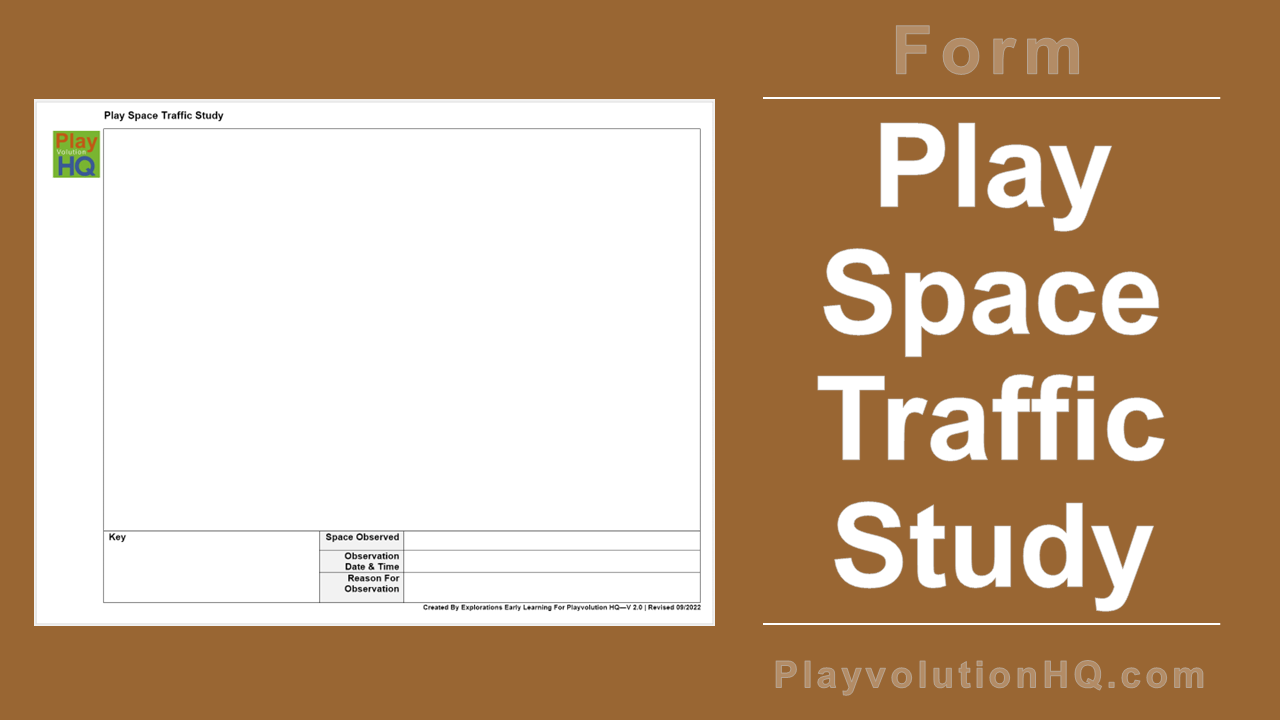
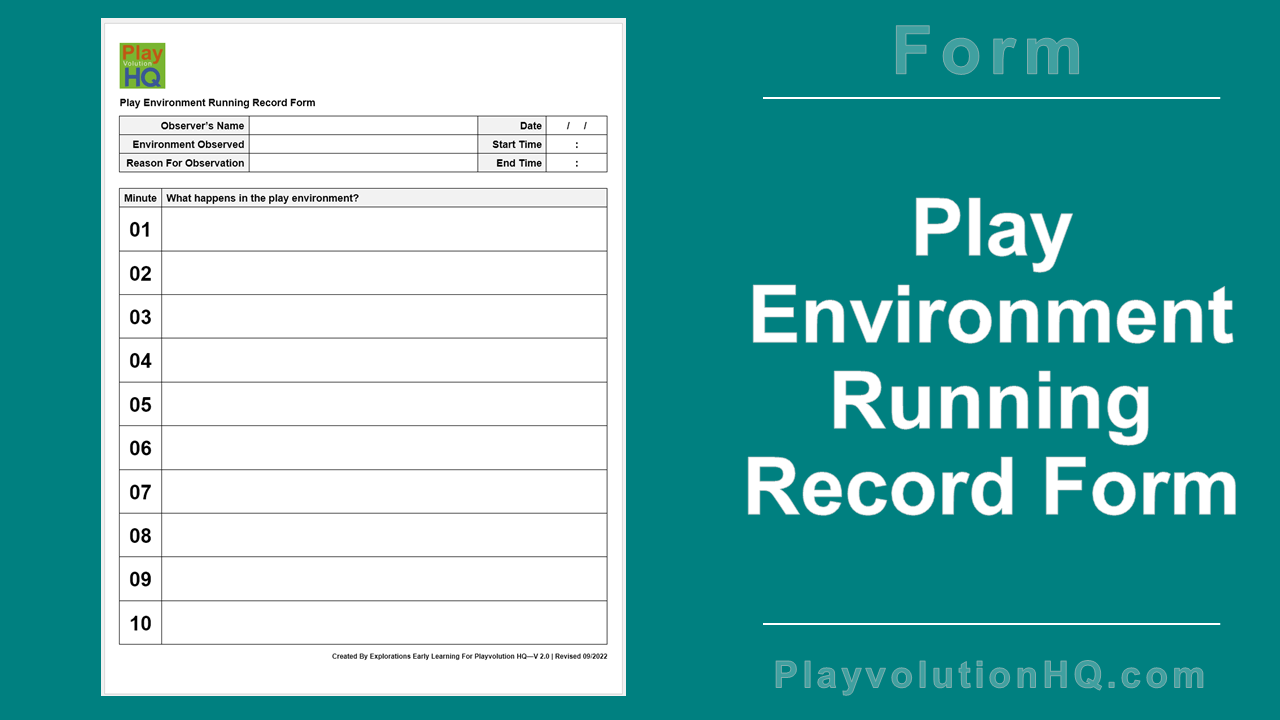
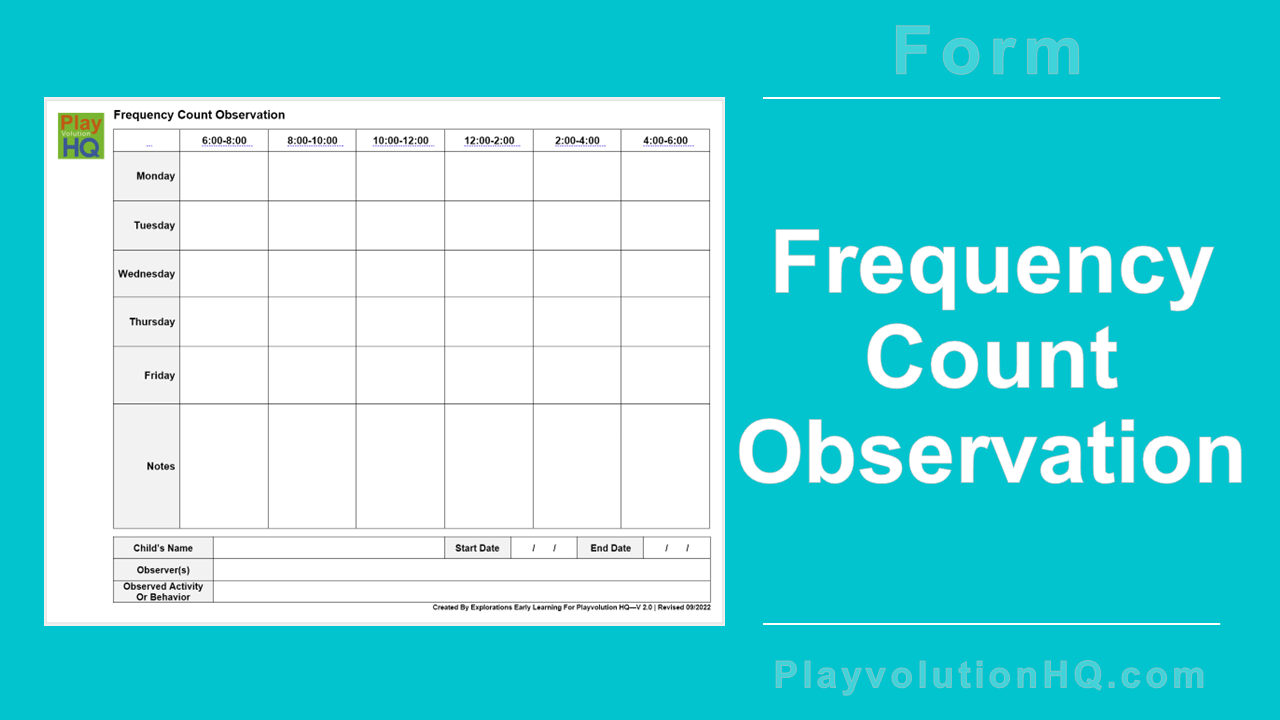

Leave a Reply